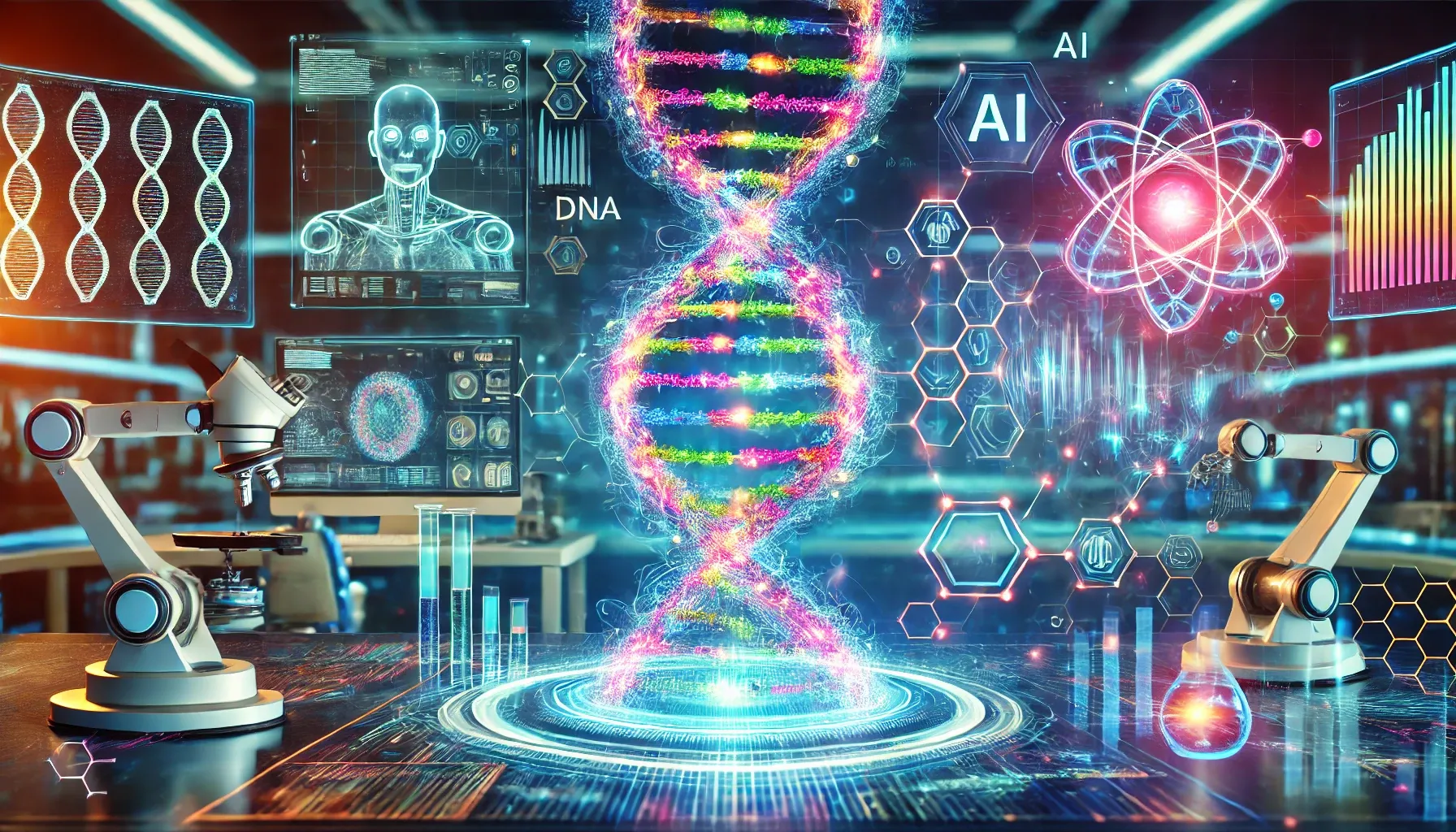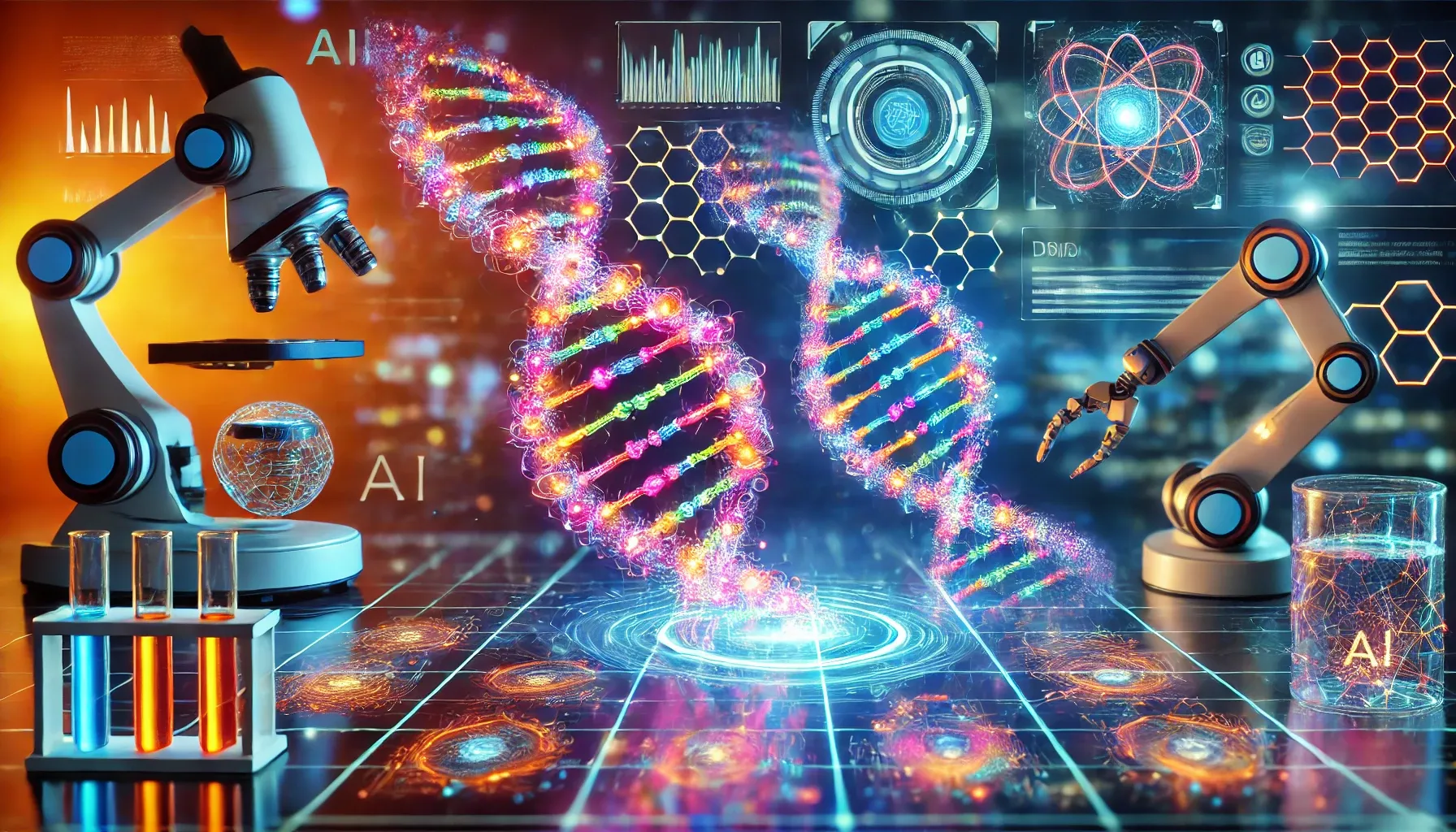How AI is Transforming Bioengineering: Innovations Reshaping the Future of STEM
Explore how AI is transforming bioengineering and creating breakthroughs in STEM.

Bioengineering stands at the cutting edge of innovation in STEM, and the rapid advancements in Artificial Intelligence (AI) are propelling this field into an era of unprecedented discovery and application. This article explores how the integration of AI into bioengineering is driving groundbreaking advancements, reshaping research methodologies, and addressing some of the most complex biological and societal challenges.
The Convergence of Bioengineering and AI
Bioengineering—an interdisciplinary field blending biology, chemistry, and medical sciences with engineering principles—has always been a hub for innovation. With AI's integration, bioengineering is venturing into uncharted territories, providing tools to interpret complex biological data, enhance experimentation, and develop innovative solutions.
One of the most profound impacts of AI in bioengineering is its ability to process and analyze vast datasets. AI algorithms identify patterns and predict outcomes with remarkable accuracy, enabling breakthroughs in genomic research, personalized medicine, and drug discovery. For instance, AI's role in high-throughput genomics is transforming how we understand genetic information, helping to uncover actionable insights in previously impenetrable datasets.
Transforming Research and Development
AI isn't merely a tool for data analysis—it’s revolutionizing how research is conducted and improving our ability to simulate biological systems, enabling more accurate and resource-efficient experiments. This capability reduces trial-and-error approaches, speeds up innovation, and offers more nuanced exploration of biological processes.
In synthetic biology, AI-driven models can design and optimize genetic circuits, creating new pathways for bioengineering applications such as biofuels, bioplastics, and pharmaceuticals. By accelerating R&D timelines, AI empowers researchers to tackle large-scale challenges like climate change and global health crises.

AlphaFold 3: Breaking New Ground
In 2024, Google DeepMind introduced AlphaFold 3, a game-changing AI model that extends beyond protein folding to predict interactions with DNA, RNA, and other molecules. This broader scope enables researchers to explore molecular biology with unprecedented depth, opening new avenues for drug discovery and therapeutic interventions.
MassiveFold: Accelerating Predictions
Another remarkable development is MassiveFold, a customizable version of AlphaFold designed to reduce protein structure prediction times from months to hours. This innovation significantly enhances research efficiency, allowing scientists to explore a greater number of hypotheses in a shorter time frame.
AI-Driven Innovations in Bioengineering
1. AI-Enhanced Protein Design
AI models like AlphaFold 3 have revolutionized protein folding prediction, unlocking the potential for de novo protein design. Researchers are leveraging these tools to engineer novel proteins for industrial, therapeutic, and environmental applications. For example, synthetic enzymes developed through AI are driving advancements in biodegradable materials and sustainable manufacturing processes.
2. Generative AI in Healthcare
Generative AI models are transforming healthcare by aiding drug discovery, generating medical insights, and even passing complex medical exams. These advancements have the potential to enhance clinical decision-making, education, and patient care, and researchers are exploring ways to integrate them effectively and safely.
3. DNA Writing Technologies
Advancements in DNA synthesis are driving progress in genetic engineering. AI-powered models such as ESM3 and Evo are being developed to streamline the design and production of synthetic genomes, enabling novel applications in medicine, agriculture, and industrial biotechnology.
4. Viral and Non-Viral Gene Therapy Delivery
AI is accelerating the development of viral and non-viral delivery technologies for gene therapy. These breakthroughs promise cost-effective and scalable solutions for treating genetic disorders.
5. Sustainable Food Production
Emerging technologies are revolutionizing agriculture and food systems by introducing sustainable and efficient methods. Innovations such as vertical farming and hydroponics are transforming how we grow crops, reducing the need for arable land and water while increasing yields. Precision agriculture, powered by IoT and advanced sensors, enables farmers to optimize water usage, reduce chemical inputs, and monitor soil health in real time.
Additionally, biotechnological advancements like cellular agriculture are paving the way for lab-grown meat and dairy products, available via companies such as Upside Foods and Perfect Day. These offerings have potential to significantly decreasing greenhouse gas emissions and land use associated with traditional livestock farming, if done right. These groundbreaking technologies promise to reshape food production, making it more sustainable and resilient to environmental challenges.
Ethical and Societal Considerations
As bioengineering evolves with AI, ethical considerations must keep pace. Challenges include ensuring data privacy, preventing misuse of genetic technologies, and addressing biases in AI systems. Regulatory frameworks must balance innovation with responsibility, ensuring AI is used ethically and equitably in bioengineering applications.
The Future of AI in Bioengineering
The future holds immense potential for the synergy between AI and bioengineering. Emerging trends include:
- Integration with Biomedical Devices: AI-powered wearable devices could provide real-time health monitoring and personalized interventions.
- AI in Synthetic Biology: Advanced AI systems will refine the design of synthetic organisms for environmental and industrial applications.
- Environmental Solutions: AI-enabled bioengineering could combat climate change through carbon sequestration, bio-based energy, and ecosystem remediation.
By fostering interdisciplinary collaboration, the convergence of AI and bioengineering promises to address global challenges, from health crises to environmental sustainability.
Conclusion
The integration of AI into bioengineering is reshaping STEM, unlocking possibilities that were once unimaginable. As these disciplines converge, they offer solutions to some of the world’s most pressing issues, from sustainable living to advanced healthcare. By embracing AI-driven bioengineering, we stand on the cusp of an era defined by innovation, resilience, and discovery.
Whether you’re a STEM student, professional, or enthusiast, this field offers an unparalleled glimpse into the future of science and technology.
References
- Nature Biotechnology (2023): "Bioengineered Spider Silk Without Critters" – Advances in synthetic biopolymers.
https://www.nature.com/articles/s41587-023-01595-8 - AlphaFold Protein Structure Database: Insights into AI-driven protein design and applications of AlphaFold 3.
https://alphafold.ebi.ac.uk - Abramson, J., Adler, J., Dunger, J., Evans, R., Green, T., Pritzel, A., Ronneberger, O., Willmore, L., Ballard, A.J., Bambrick, J. and Bodenstein, S.W., 2024. Accurate structure prediction of biomolecular interactions with AlphaFold 3. Nature, pp.1-3.
- Google DeepMind and VentureBeat (2024): "AlphaFold 3: Expanding AI Predictions Beyond Proteins."
https://venturebeat.com - MassiveFold and Phys.org (2024): "MassiveFold: Reducing Protein Prediction Times with AI."
https://phys.org - Stanford HAI (2023): "13 Biggest AI Stories of 2023" – Highlights of AI-driven innovations.
https://hai.stanford.edu/news/13-biggest-ai-stories-2023 - Nature Biotechnology (2023): "Tech Startups Making Food from Atmospheric CO2" – Innovations in food technology.
https://www.nature.com/articles/s41587-023-01593-w - Financial Times (2024): Nobel Prize in Chemistry awarded to AlphaFold creators.
https://www.ft.com - Journal of Gene Therapy: "Non-Viral Gene Delivery Technologies" – Emerging advancements in gene therapy.
https://www.sciencedirect.com - World Economic Forum (2023): "AI’s Role in Sustainable Development" – Analysis of AI’s applications in bioengineering.
https://www.weforum.org - Hayes, T. et al. Simulating 500 million years of evolution with a language model. Synthetic Biology (2024).
- Nguyen, E. et al. Sequence modeling and design from molecular to genome scale with Evo. bioRxiv 2024.02.27.582234 (2024) doi:10.1101/2024.02.27.582234.
Written with the assistance of GPT-4o.

